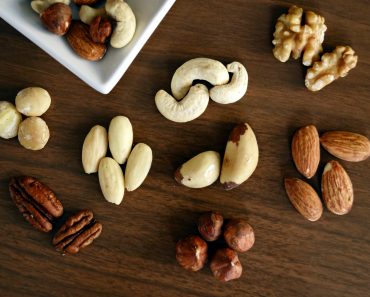Sometimes dogs can try to grab your attention so you can give them a bit of your food.
But are nuts safe for dogs? Most are NOT safe. For example, macadamia nuts can be toxic. English Walnuts are ok, however, Black walnuts and the other parts of the plant are poisonous to dogs. Although peanut butter has a nut in its name, it is actually a legume, so peanuts and peanut butter are safe as long as they don’t contain a sweetener. Nuts are high in calories and some pose a choking hazard. There are better special treats to choose from
Dogs and cats are always interested in whatever I eat. But this is not always the right choice. Despite being very similar to us anatomically, they have a different digestive system than ours. They cannot always digest the food that we enjoy. We must remember that dogs are carnivorous animals, although we have accustomed them to a diet with more vegetables.
Focusing on the topic, there are various types of nuts, and not all are equally safe for dogs or cats. So what nuts can dogs eat? First, let’s talk about the dangers and explain which nuts are definitely toxic and poisonous to dogs.
In general, nuts are not the most advisable food for dogs to eat. They have a high content of phosphorus and usually also contain high levels of fats. An excess of phosphorus can cause stones in the bladder. If we feed our dog with commercial pet food, they already get a sufficient supply of phosphorus and other nutrients and vitamins they need. . Now, if we offer our dog a homemade diet, then we can regulate the contribution of phosphorus ourselves.
So can you feed your dog nuts? YES with caution. some nuts are o.k., without the shell, in minimal quantities and very occasionally yes, as long as there is no allergy, of course. Ingesting the walnut without peeling could provoke an intestinal obstruction in the animal, which may even require surgical intervention in the worst case.
When are nuts toxic to dogs ?
It has been observed that the black walnut can have juglone, a toxic substance that can be harmful It is found exclusively in the leaves and stems of the plant or the cover of the walnut, not the nut inside. That is why, in addition to avoiding a possible obstruction, it is so important to give your dog shelled nuts.
In general, giving a dog a nut does not usually lead to an allergic process. However, as we have mentioned, you should be especially careful with macadamia nuts, as they are very toxic to them, and can cause neurological problems.
In case of allergy to this dried fruit, the animal will most likely experience a series of symptoms common to all food allergies, such as:
Redness and itchiness
Choking feeling
Inflammation of the mouth and eyelids
Always review the ingredients of human snacks that we share with our pets animals, We must also be careful while taking a walk on the street or hiking with our dog because if he eats a walnut that has fallen to the ground, it could be moldy and also toxic to the animal.
Macadamia nuts are a BIG NO!
Macadamia nuts are toxic and NOT SAFE for dogs. Although exactly what compounds make them toxic to them is not yet known. If your dog has eaten one or two macadamia nuts, it could have mild to severe hind leg weakness, with poisoning being more critical when more than seven macadamia nuts are ingested. The severe symptoms of macadamia nut poisoning in dogs are these, from most to least common:
Weakness
Depression
Vomiting
Ataxia (muscle control difficulty)
Tremors
Hyperthermia
Symptoms usually appear 12 hours after ingestion and, although this can be very scary, they typically disappear 24 or 48 hours after ingestion. However, it is always advisable to consult the vet.
What about Peanut Butter ?
Peanut butter is not actually a nut. Are you surprised? It is actually a legume and can be an enjoyable healthy treat for your pup. However many brands contain the artificial sweetener Xylitol. IT IS HIGHLY TOXIC TO DOGS AND CATS Even a small amount can cause disorientation and even seizure. A larger dose of xylitol causes severe, irreversible liver damage, or worse. So please read your labels before giving your furry friend some peanut butter. At home, I try to avoid bringing Xylitol into the house for us humans there are other sugar-free sweeteners. For example, monkfruit is less likely to be dangerous for your pets and my preferred alternative sweeter.





